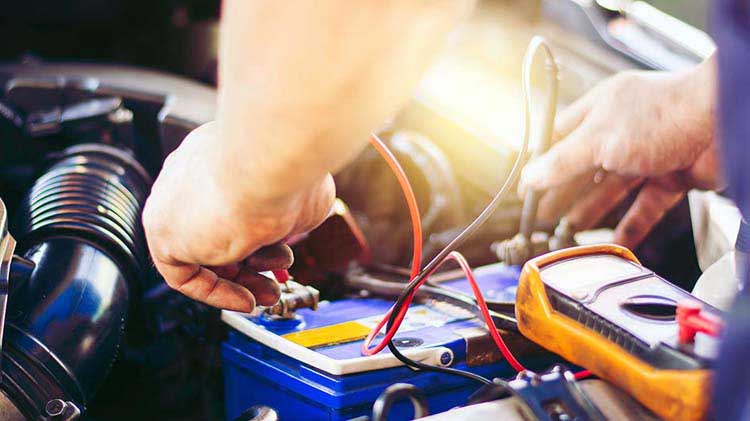Exploring the Advancements and Challenges of Electric Scooter Battery Technology
Electric scooters have become increasingly popular in recent years as a sustainable and convenient mode of transportation. With concerns about climate change and the need to reduce pollution, electric scooters offer a promising solution. However, the development of efficient and reliable battery technology remains a crucial challenge for this industry.
Advancements in battery technology have played a significant role in the growth of electric scooters. Lithium-ion batteries, in particular, have revolutionized the industry by providing higher energy density, longer battery life, and faster charging times compared to their predecessors. These advancements have made electric scooters viable alternatives to traditional gasoline-powered scooters.
One of the key advantages of lithium-ion batteries is their energy density, which refers to the amount of energy that can be stored in a given volume or weight. Higher energy density allows electric scooters to have longer ranges, making them more practical for daily commuting. Additionally, lithium-ion batteries can withstand multiple charge and discharge cycles without significantly degrading their performance, ensuring a longer lifespan for the battery.
Furthermore, lithium-ion batteries have relatively low self-discharge rates, meaning they can retain their charge for longer periods without being in use. This characteristic is especially useful for electric scooters, as users may not always ride them every day. With low self-discharge rates, riders can expect their scooter’s battery to last longer between charges.
Another significant advancement in battery technology is the development of fast-charging capabilities. Charging an electric scooter used to take several hours, which was a major drawback compared to refueling a traditional scooter. However, with the integration of fast-charging technology, electric scooter batteries can now be fully charged in a matter of hours, making them more convenient for everyday use.
Despite these advancements, there are still challenges that need to be addressed in electric scooter battery technology. One of the main challenges is the limited range of electric scooters compared to gasoline-powered scooters. While the range has improved with advancements in battery technology, it is still a limitation for longer trips or areas with limited charging infrastructure. Battery manufacturers and scooter companies are continuously working to develop batteries with even higher energy densities to overcome this challenge.
Another challenge is the overall weight of electric scooter batteries. Lithium-ion batteries are relatively heavy, and this weight affects the scooter’s overall performance, including its speed and handling. To tackle this issue, researchers are focusing on developing lighter and more compact batteries without compromising their energy storage capabilities. This would not only improve the performance of electric scooters but also make them easier to handle and transport.

Furthermore, the recycling and disposal of lithium-ion batteries pose environmental challenges. Proper disposal and recycling processes are necessary to prevent potential harm to the environment. As the popularity of electric scooters continues to rise, it is crucial to develop sustainable and efficient methods for handling battery waste.
In conclusion, advancements in battery technology have greatly contributed to the growth of electric scooters as a sustainable mode of transportation. Lithium-ion batteries, with their high energy density, longer battery life, and fast-charging capabilities, have made electric scooters practical and convenient for everyday use. However, challenges such as limited range, battery weight, and recycling need to be addressed for further improvement. With continued research and innovation, it is expected that electric scooter battery technology will continue to advance, making electric scooters an even more attractive and viable transportation option.
-
 In recent years, the demand for energy storage has increased significantly as more people are turning to renewable energy sources like solar and wind power. The key to reliable and efficient energy storage lies in the development of high-performance batteries. Among the different types of batteries available in the market, lithium-ion batteries have emerged as the most promising technology for...Read more
In recent years, the demand for energy storage has increased significantly as more people are turning to renewable energy sources like solar and wind power. The key to reliable and efficient energy storage lies in the development of high-performance batteries. Among the different types of batteries available in the market, lithium-ion batteries have emerged as the most promising technology for...Read more -
 Introduction: Lithium iron phosphate starter battery is a high-performance and reliable power source that is designed to provide quick and efficient starting power to various vehicles and equipment. This type of battery is known for its long life, high energy density, and exceptional safety features, making it ideal for use in various applications. Features of Lithium Iron Phosphate...Read more
Introduction: Lithium iron phosphate starter battery is a high-performance and reliable power source that is designed to provide quick and efficient starting power to various vehicles and equipment. This type of battery is known for its long life, high energy density, and exceptional safety features, making it ideal for use in various applications. Features of Lithium Iron Phosphate...Read more -
 Introduction Motorcycle batteries are an essential component in any motorcycle. They provide the electrical power required to start the engine, run the lights, and power other electrical accessories. Lithium iron phosphate (LiFePO4) batteries are becoming increasingly popular in the motorcycle industry due to their high energy density, low weight, and long lifespan. In this article, we will discuss the...Read more
Introduction Motorcycle batteries are an essential component in any motorcycle. They provide the electrical power required to start the engine, run the lights, and power other electrical accessories. Lithium iron phosphate (LiFePO4) batteries are becoming increasingly popular in the motorcycle industry due to their high energy density, low weight, and long lifespan. In this article, we will discuss the...Read more -
 When it comes to boating, having a reliable power source is crucial for a smooth and enjoyable experience on the water. One of the most important components of a boat's electrical system is the marine battery, responsible for powering various onboard devices and systems. Investing in a high-quality marine battery is essential for any boat owner, as it provides the...Read more
When it comes to boating, having a reliable power source is crucial for a smooth and enjoyable experience on the water. One of the most important components of a boat's electrical system is the marine battery, responsible for powering various onboard devices and systems. Investing in a high-quality marine battery is essential for any boat owner, as it provides the...Read more -
 The increasing demand for power storage solutions is driving the development of various energy storage systems, including batteries. Among them, the LiFePO4 lithium battery stood out as a promising option due to its high energy density, long cycle life, and low environmental impact. In this article, we will explore the benefits and applications of the 12V 100Ah LiFePO4 lithium battery...Read more
The increasing demand for power storage solutions is driving the development of various energy storage systems, including batteries. Among them, the LiFePO4 lithium battery stood out as a promising option due to its high energy density, long cycle life, and low environmental impact. In this article, we will explore the benefits and applications of the 12V 100Ah LiFePO4 lithium battery...Read more -
 With the increasing demand for portable electronic devices, the need for high-capacity, lightweight and durable batteries has become more significant. Lithium batteries have emerged as a popular choice because of their high energy density, long cycle life, and low self-discharge rate. However, a single lithium battery may not provide enough power for some applications, which is why it is necessary...Read more
With the increasing demand for portable electronic devices, the need for high-capacity, lightweight and durable batteries has become more significant. Lithium batteries have emerged as a popular choice because of their high energy density, long cycle life, and low self-discharge rate. However, a single lithium battery may not provide enough power for some applications, which is why it is necessary...Read more -
 In today's fast-paced world, we are constantly on the move. Whether it's for work or leisure, we rely heavily on our electronic devices to stay connected and get things done. However, the biggest challenge we face is ensuring that our devices have enough power to last throughout the day. This is where a 24V on-board battery charger comes in handy,...Read more
In today's fast-paced world, we are constantly on the move. Whether it's for work or leisure, we rely heavily on our electronic devices to stay connected and get things done. However, the biggest challenge we face is ensuring that our devices have enough power to last throughout the day. This is where a 24V on-board battery charger comes in handy,...Read more

